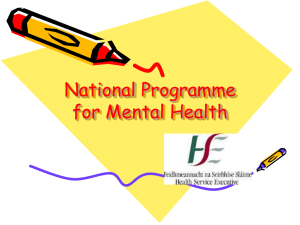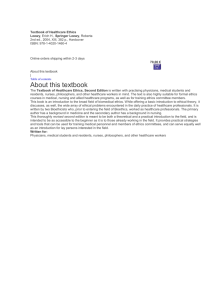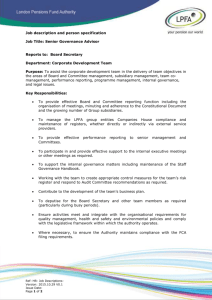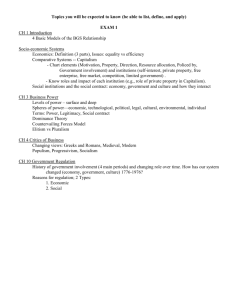How to Your Prioritise Learning
advertisement
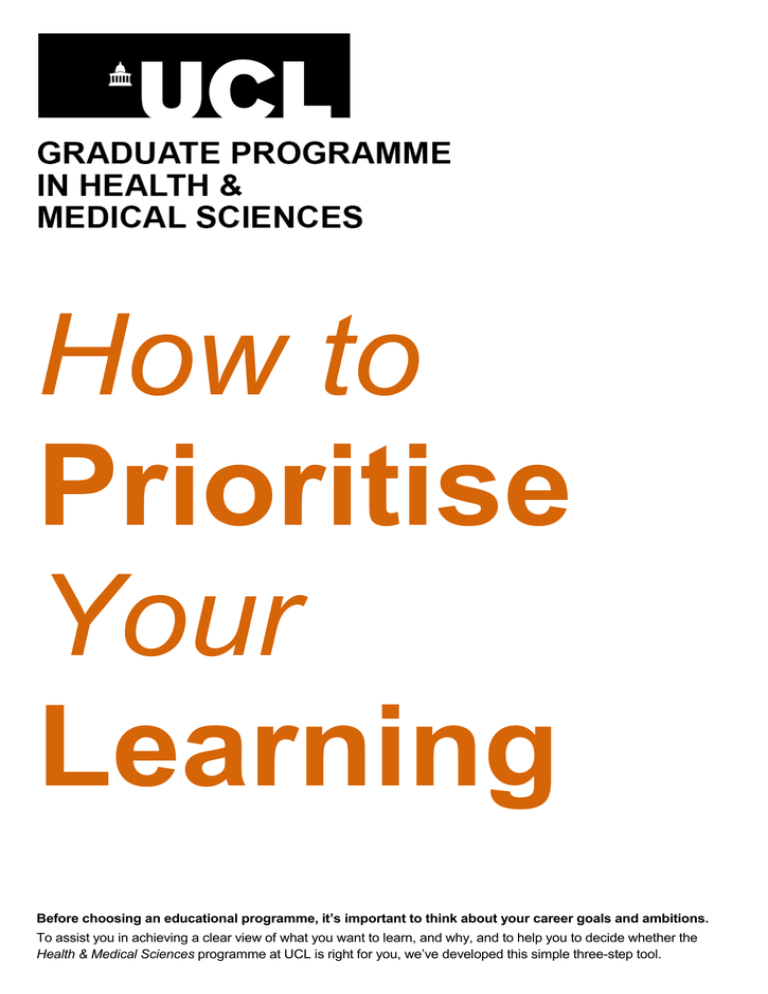
How to Prioritise Your Learning Before choosing an educational programme, it’s important to think about your career goals and ambitions. To assist you in achieving a clear view of what you want to learn, and why, and to help you to decide whether the Health & Medical Sciences programme at UCL is right for you, we’ve developed this simple three-step tool. Step 1 People undertake professional development for many reasons. Which of these describe you? • • • • Reflect on and review your career goals and reasons for learning Step 2 Rate your skills, knowledge and experience Whatever your motives for contemplating postgraduate study, you need to identify your strengths and those skills which are less developed. Use the checklist (derived from the literature): • In column A, rate the relevance of each skill to your goals as blank, , or • Then, where column A shows that an area is important, use column B to rate your current skills as blank, , , or • • I am seeking promotion (e.g. I will be applying to become a consultant). I would like to change my job and want to improve my CV. I am taking on a new role and want to ensure I am ready for the challenge. I plan on staying in my current job but would like to take on new responsibilities. I feel it’s time for me to learn new skills and to keep my practice up to date. I want to deepen my knowledge in specific areas and improve my practice. A Cardiology C L Care of the Elderly I N Child Health I C Chronic Disease Management A L Gastroenterology S P E C I A L T I E S Mental Health Oncology Primary Care Sport, Health & Exercise Sexual Health Women’s Health Clinical Effectiveness e.g. national policies, audit, NICE Clinical Governance G E N E R I C T R A N S F E R A B L E Healthcare Finance e.g. commissioning services; strategic needs assessment; resource allocation Leadership: Supervision e.g. leading and managing change; managing teams; motivating staff Legal & Ethical Issues relating to Healthcare Patient Safety e.g. adverse healthcare events; risk assessment Patient’s Perspective & Experience e.g. eliciting feedback and handling complaints; culture and health; patient self-care; shared decision-making; impact of the Internet Public Health e.g. health promotion; healthcare policy S Quality in Healthcare K I Research Methods and Skills L L Service Improvement S Teaching & Mentoring Students and Staff e.g. educational supervision; assessing students Using Technology in Clinical Settings B Step 3 Priority for you? C L I N I C A L Identify your priorities Look in the Module Library under... Cardiology Under development Care of the Elderly Under development Child Health • Child Health Chronic Disease Management • Chronic Disease Management Gastroenterology • Gastroenterology Mental Health • Mental Health Oncology • Oncology Primary Care • Primary Care Sexual Health • Sexual Health Women’s Health • Women’s Health Clinical Effectiveness • • • • Law, Ethics, Clinical Governance Leadership and Management Organisational Issues Quality and Clinical Effectiveness Clinical Governance • • • • Law, Ethics, Clinical Governance Leadership and Management Organisational Issues Quality and Clinical Effectiveness Any line in Step 2 with or more in column A and or less in column B is a likely priority. Mark the skills gap you’ve found with a . S P E C I A L T I E S Column 3 points you to relevant themes in the HMS Module Library online at www.ucl.ac.uk/chime/ study/health-sciences/ module-library • G E N E R I C T R A N S F E R A B L E S K I L L S Healthcare Finance Under development Leadership: Supervision • • • Education and Training Leadership and Management Organisational Issues Legal & Ethical issues relating to Healthcare • • Law, Ethics, Clinical Governance Organisational Issues Patient Safety • • • • Law, Ethics, Clinical Governance Leadership and Management Organisational Issues Quality and Clinical Effectiveness Patient’s Perspective & Experience • • • Chronic Disease Management Primary Care Patient Perspectives and Experience Public Health • Public Health Quality in Healthcare • • • Leadership and Management Organisational Issues Quality and Clinical Effectiveness Research Methods & Skills • Research Methods & Skills Service Improvement • • • • • • • • Chronic Disease Management Law, Ethics, Clinical Governance Leadership and Management Organisational Issues Patient Perspectives and Experience Quality and Clinical Effectiveness Research Methods and Skills Using Technology to support Patient Care Teaching & Mentoring Students and Staff • Education and Training Using Technology in Clinical Settings • Using Technology to support Patient Care

